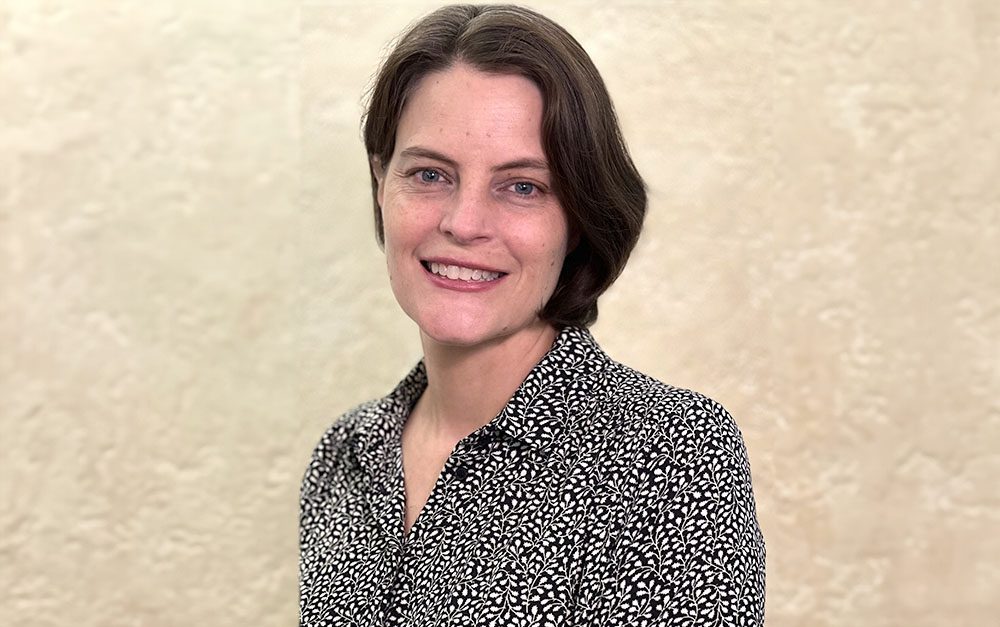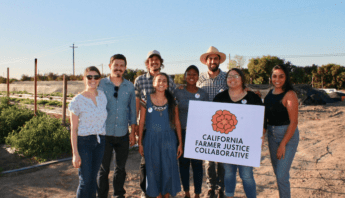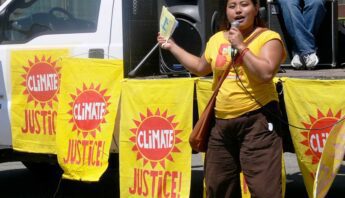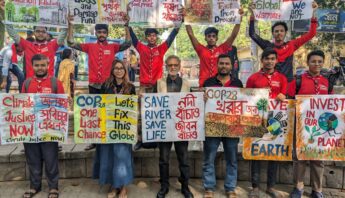PAN centers the values of collaboration, equity, and solidarity both externally through our work, and internally through our relationships. To us, collaboration means sharing our skills in science, communications, and organizing with impacted communities. We embrace and actively seek to bring a wide range of viewpoints, identities, and life experiences to our staff, board, and network. PAN seeks equity by supporting those who are most directly impacted by an unjust and resource intensive food and farming system. We encourage their leadership and we work as partners to seek positive change. Solidarity, to PAN, means taking action to stand with others who are dedicated to building a just world. We commit to being a visible ally and take public positions not only on oppression within the food system, but also within the broader social justice movement.
Each person on our staff or sitting on our Board of Directors brings something unique to our work and values. In embracing how this individuality makes us stronger, we’re embarking on a series of blogs which will highlight the unique characteristics that build upon one another to make PAN the organization it is today.
Allison Davis
Recently, I had the opportunity to (virtually) sit down with our new Executive Director, Allison Davis to learn more about her history, discuss what brought her to PAN and to explore what she sees for the future of PAN.
The first thing I noticed was that Allison is incredibly personable and easy to talk to. She’s one of those rare people who makes you feel that you are being heard—even on a video call—which, as we have all learned during our collective Zoom Era, is no easy feat. As I talked with Allison, it almost felt like I could watch as ideas sprouted and bloomed in her mind as she talked through plans, projects and priorities. It’s quite a special thing to find genuine conversation and collaboration in a virtual space, but Allison made it seem easy.
Allison has spent her career working at the intersection of environmental health, equity and human rights. She has over 20 years of experience working with civil society organizations, including Oxfam America, where she evaluated the impacts of large agricultural investments by governments, banks and non profits on the lives of rural farmers. She first learned of PAN through Oxfam’s work in coalitions advocating for worker rights which are often infringed by the use toxic pesticides. Later in Allison’s career, she served in the capacity of program leadership at Global Greengrants Fund. In that capacity, Allison collaborated with PAN to increase access to funding for diverse local groups working to improve agricultural systems for healthier food and social justice.
Q: What was it about PAN’s work that made you want to be part of the organization?
I was attracted to PAN because of who PAN attracts—the people and the quality of relationships they have. It takes a very long time to establish a network of relationships and PAN has taken the time to do that. What that means is that PAN is able to leverage so much when we work together with our varied coalition spaces. And the point for PAN has never been the visibility, it has always been the solidarity. PAN has always understood that the people most affected by the agrochemical industry have the highest stake in seeing things improve, and that they are the ones who will carry the fight forward, even over generations. So our job is to get behind them and elevate them.
Q: From your perspective as a new member of the team, what sets PAN apart?
To me it is the way PAN engages with people. Our staff are out there constantly introducing people to each other, building bridges, widening the work and increasing people’s understanding of these issues. They are out there meeting with community organizations on the ground in Iowa and California. They are meeting virtually on podcasts and panels to continue building the understanding within coalitions. And, at the same time, some of them are taking care of their family farms and all the work that entails. They are some of the most passionate people you will ever meet.
PAN is also set apart by our local-to-global coalition. There are independent PAN regional centers around the world. We are separate entities, but we come together to do things like advocate in international spaces to reduce highly hazardous pesticides. With this global network, PAN can introduce a community in the US to an amazing group in Malaysia looking at sustainable pest management, or get people on Zoom together from around the world to look at international policy.
Q: What areas of focus will PAN prioritize in the coming year?
The principles of agroecology
PAN wants to make sure that in the emerging and important conversations about regenerative agriculture, that everyone understands how important the agrochemical side of the equation is. In many ways, pesticides and the seeds that have been genetically modified to be resistant to pesticides, are at the very heart of industrial farming and how farming economics work. There are so many key leverage points we can touch to make farming safer and food healthier and more sustainable by entering into a more holistic conversation. To that end, we will lean into the principles of agroecology even more than we have in the past.
Pesticides + Climate Change
We also are going to continue to point out the relationship between agrochemicals and climate change this year. There are all sorts of critical relationships between weeds, pest management and climate change, as well as the use of fossil fuels in pesticides. In fact, some pesticides are super greenhouse gas pollutants before even taking the production process into consideration. These products should be addressed by society sooner, rather than later. We are making these relationships clearer to people.
It is also important for us to point out that some proposed “solutions”, if enacted, would have the ironic effect of drastically increasing pesticide use, resulting in toxics being released into the ecosystem. We can’t sacrifice one environmental ill for another. We can’t rely on solutions that address climate warming but contribute further to the biodiversity collapse—that doesn’t make any sense. And we can’t sacrifice human health anymore. People do not want to see more chemicals in their water and air. We must stand up for nature. The silent natural world is at the complete mercy of us all. What we do or do not do today has implications that are so much larger than any of us.
Farm Bill
This is a Farm Bill year, and although we are not optimistic that Congress will be able to pass transformative legislation, we will make clear what is important to PAN and our constituents about the Farm Bill; we are working on that in a few coalitions (particularly HEAL Food Alliance) this year.
Global Focus
We have a few staff members who will be really active at the international level to follow up on a tremendous win in 2023 getting a global commitment to phase out highly hazardous pesticides. Now there is so much work to be done to follow up and it is so important that people work on this together.
Lastly, I just want to say that I am so proud of the work across this country of core partners we support in coalitions, such as the Midwest Farmers of Color Collective and the Central California Environmental Justice Network (CCEJN). Together we are really seeing policy momentum across key states for safer farming conditions and healthier food.
PAN is thrilled to welcome Allison aboard. We are grateful for the energy she brings to our work and the focus she has placed on climate justice, agroecology, and centering our core constituencies and our values of collaboration, equity, and solidarity at the heart of our work.








